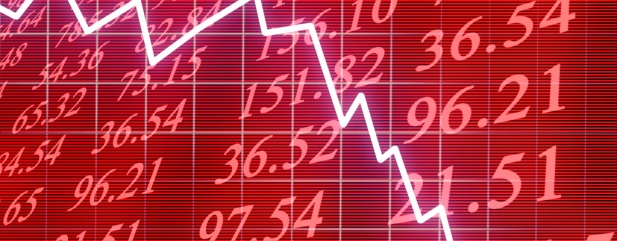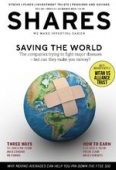Archived article
Please note that tax, investment, pension and ISA rules can change and the information and any views contained in this article may now be inaccurate.
Is the stock market over-reacting to bad news with large share price declines?

The UK stock market is being very edgy with extreme reactions to negative news. More than 230 companies have seen their share price fall by more than 20% year-to-date.
That’s approximately 12% of the entire market and nearly twice as many as the number of companies which fell by more than a fifth in value in the same period last year.
It feels like there is at least one stock falling by a large amount, say 30% or more, every day at the moment. And the share price decline isn’t restricted to a single day. There are numerous examples of stocks that continue to fall in value for days or weeks after reporting bad news.
IRRATIONAL MARKET BEHAVIOUR
Contrarian investors would normally welcome such market dynamics as it provides potential opportunities to pick up stocks that have been ‘oversold’. This refers to a decline in the price of a company to a level below where its true values resides.
However, the market doesn’t appear to be working in a rational manner. Stocks are continuing to decline in value despite analysts quantifying the impact of the bad news. Therefore taking a position off the back of bad news would require patience and a strong stomach.
One would expect the market to eventually reprice each affected stock back to fair value in time – the unknown is when the re-rating events will happen.
FROM EXPENSIVE TO STILL EXPENSIVE
Markets can overshoot in both directions. Stocks can actually be priced too high in the good times. You must not assume the price before the negative news is the level at which a stock will eventually return.
Alfa Financial Software (ALFA) was arguably trading at too high a valuation before it spooked the market in early March on the timing of contracts and currency headwinds.
Its share price has subsequently fallen by 27% even though analysts only downgraded earnings forecasts by just 4.8%.
Alfa was trading on 39 times forecast earnings for 2018 prior to the warning. Now it is trading on 29.2-times. That is still too high for a company with elevated risks to earnings, even though it is fundamentally a good business.
FROM CHEAP TO EVEN CHEAPER
In contrast, waste management group Biffa (BIFF) looks to have been significantly oversold. Its shares weren’t expensive before negative news triggered a share price decline. They now look really cheap.
Biffa was trading on 11.9-times forecast earnings for the year to 31 March 2019 on the eve of its disappointing trading update earlier this month. Ongoing restrictions for exporting paper recyclates to China prompted an 8% downgrade to the March 2019 financial year’s earnings per share (EPS) estimates.
The shares have fallen by more than twice the EPS downgrade, down 19% to 200.5p. They now trade on 10.4 times earnings which seems unjustified given its core business is still trading well and earnings forecasts now assume zero financial contribution from exports to China for at least the next two years.
While there are some opportunities among sold-off stocks, you must approach them with an open mind and not assume everything will revert back to ‘normal’ again.
The current state of the market also suggests you should look at existing holdings and ask whether they are worth their current rating. (DC)
Important information:
These articles are provided by Shares magazine which is published by AJ Bell Media, a part of AJ Bell. Shares is not written by AJ Bell.
Shares is provided for your general information and use and is not a personal recommendation to invest. It is not intended to be relied upon by you in making or not making any investment decisions. The investments referred to in these articles will not be suitable for all investors. If in doubt please seek appropriate independent financial advice.
Investors acting on the information in these articles do so at their own risk and AJ Bell Media and its staff do not accept liability for losses suffered by investors as a result of their investment decisions.
Issue contents
Big News
- Impressive earnings ‘beats’ from service companies and engineers
- Barclays now in Edward Bramson’s cross-hairs
- What does Putin’s win mean for Russia-focused investments?
- FTSE 100 in a spin amid takeovers, restructures and spin-offs
- Is there more to come from Burford Capital?
- Pound see-saws on Brexit progress and softer price growth

 magazine
magazine








